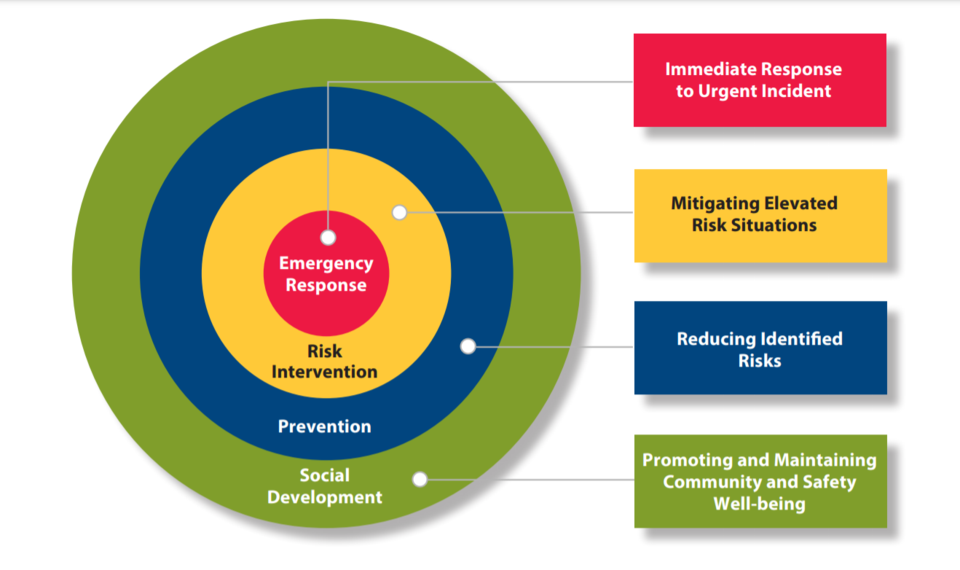WELLINGTON COUNTY – Wellington County’s safety and well-being plan has been completed and will be forwarded to county council for final approval this month.
Safe Communities Wellington County (SCWC) have spearheaded this project aimed at addressing major safety issues with safety-oriented community partners.
The Ontario Ministry of the Solicitor-General has also mandated all municipalities to create a safety plan that needs to be adopted by July 1.
Christine Veit, SCWC coordinator, told the police services board on Wednesday work on this plan has origins nearly a decade ago and the original framework of their plan “started on a napkin” that former detachment commander Insp. Scott Lawson wrote on.
“Now that the plan has been created, it will be a living document that will be changing,” Veit said. “Consider this Phase 1.”
Key areas of focus identified in the plan are: reduce motor vehicle collisions, reduce falls in older populations, provide easier access to mental health supports, decrease accidental poisonings, improve cyclist and pedestrian safety, safer protocols within sports organizations and reduce agriculture related injuries.
Issues will be addressed through action groups created by the SCWC leadership table who will then develop a plan with measurable goals.
The plan notes an emerging approach to community safety and well-being with four levels of intervention.
The first being social development through promoting and maintaining community and safety well-being and addressing underlying causes of social issues which may lead to harm.
The plan identifies groups such as the Guelph-Wellington Task Force for Poverty Elimination, Wellington Guelph Drug Strategy and the OPP’s community safety services unit as playing a role at this level.
The next level of intervention involves prevention through reducing identified risks with project lifesaver and the community paramedicine and remote patient monitoring, with Canadian Mental Health Association Waterloo-Wellington programs noted as examples of this.
Risk intervention and emergency response are the next two levels of intervention with the Integrated Mobile Police and Crisis Team (IMPACT) which enables mental health clinicians to respond along-side officers to mental health related calls.
The next steps are for county council to approve the plan and then to garner support from member municipalities for local safe communities groups.



